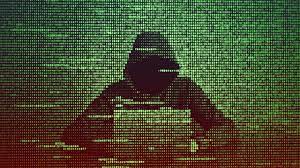
In a recent revelation, Microsoft researchers have identified a coordinated cyberattack by Iranian hackers targeting U.S. officials in the lead-up to the upcoming election. The findings highlight the ongoing threat of foreign interference in American democratic processes, raising concerns about the integrity and security of the election.
Details of the Cyberattack
According to Microsoft’s report, the hackers, linked to a group known as Phosphorus, attempted to breach the accounts of several high-profile U.S. officials. These attacks were primarily focused on individuals involved in the upcoming election, including members of political campaigns, government officials, and key stakeholders. The cyberattacks reportedly involved phishing attempts and other sophisticated methods aimed at gaining unauthorized access to sensitive information.
See Here:
Microsoft’s Response and Mitigation Efforts
Microsoft’s security team acted swiftly upon detecting the attacks, working to notify the targeted individuals and organizations. The company has also bolstered its security measures to prevent further breaches and has shared its findings with U.S. authorities to assist in ongoing investigations. Microsoft emphasized the importance of vigilance and urged all political figures to enhance their cybersecurity protocols ahead of the election.
Iranian Hacker Group: Phosphorus
The Iranian hacker group, Phosphorus, also known as APT35, has been active for several years, often targeting entities perceived as adversaries to Iran. The group has a history of conducting cyber espionage campaigns, primarily focusing on government officials, journalists, and activists. This latest incident underscores Phosphorus’s continued efforts to interfere in international affairs, particularly in the context of U.S. elections.
Implications for Election Security
The discovery of this cyberattack highlights the ongoing challenges faced by election security officials in safeguarding democratic processes. With foreign interference remaining a significant concern, the U.S. government and private sector are working collaboratively to enhance cybersecurity measures. This includes the development of more advanced detection systems, increased information sharing, and proactive strategies to mitigate potential threats.
Reactions from U.S. Officials and the Public
The news of the Iranian cyberattack has prompted reactions from various U.S. officials, who have expressed concern about the potential impact on the upcoming election. There is a renewed call for greater investment in election security and a push for more robust international cooperation to address the threat of cyber interference. The public has also been reminded of the importance of being vigilant against disinformation campaigns that may arise as a result of such attacks.
Ongoing Investigations and Future Measures
As investigations into the cyberattack continue, U.S. authorities are likely to take further steps to counter foreign interference. This may include sanctions against those responsible, as well as enhanced collaboration with allies to strengthen global cybersecurity defenses. Microsoft’s findings serve as a crucial reminder of the persistent threats posed by state-sponsored hacking groups and the need for constant vigilance in protecting democratic institutions





